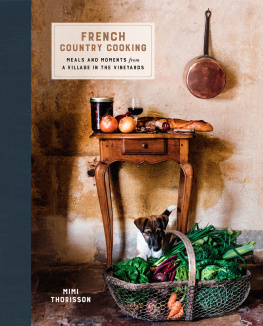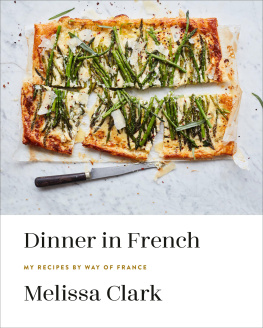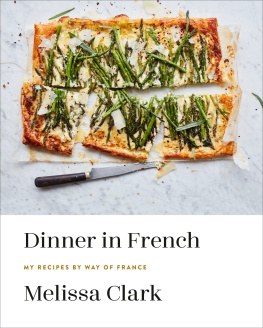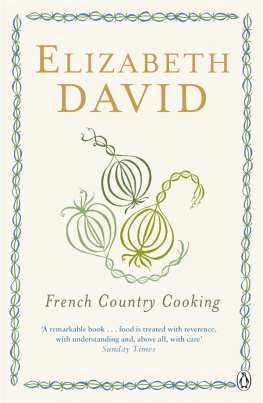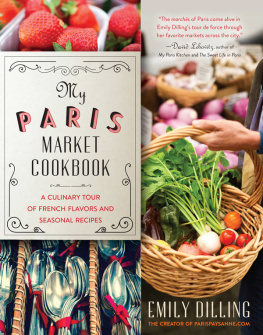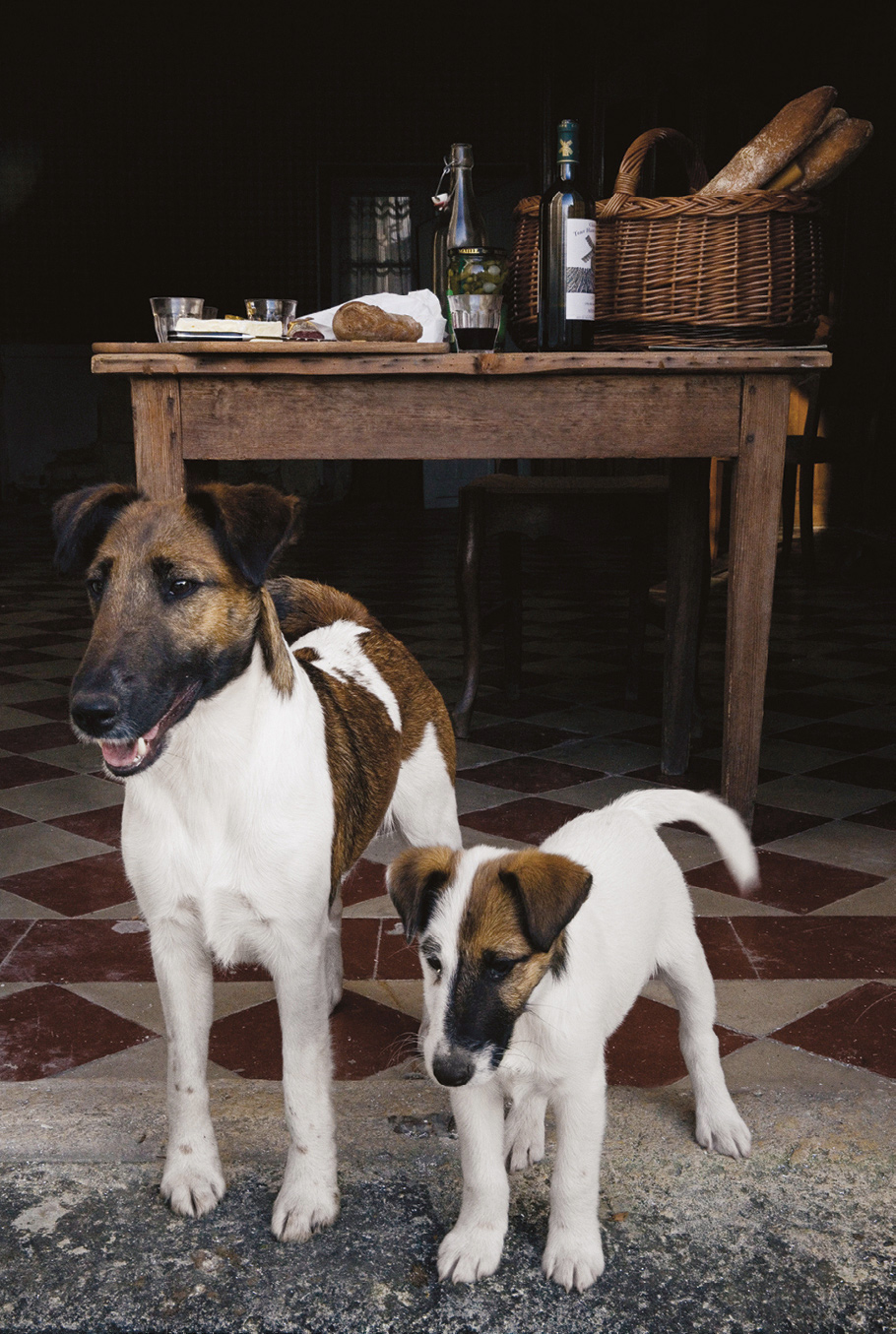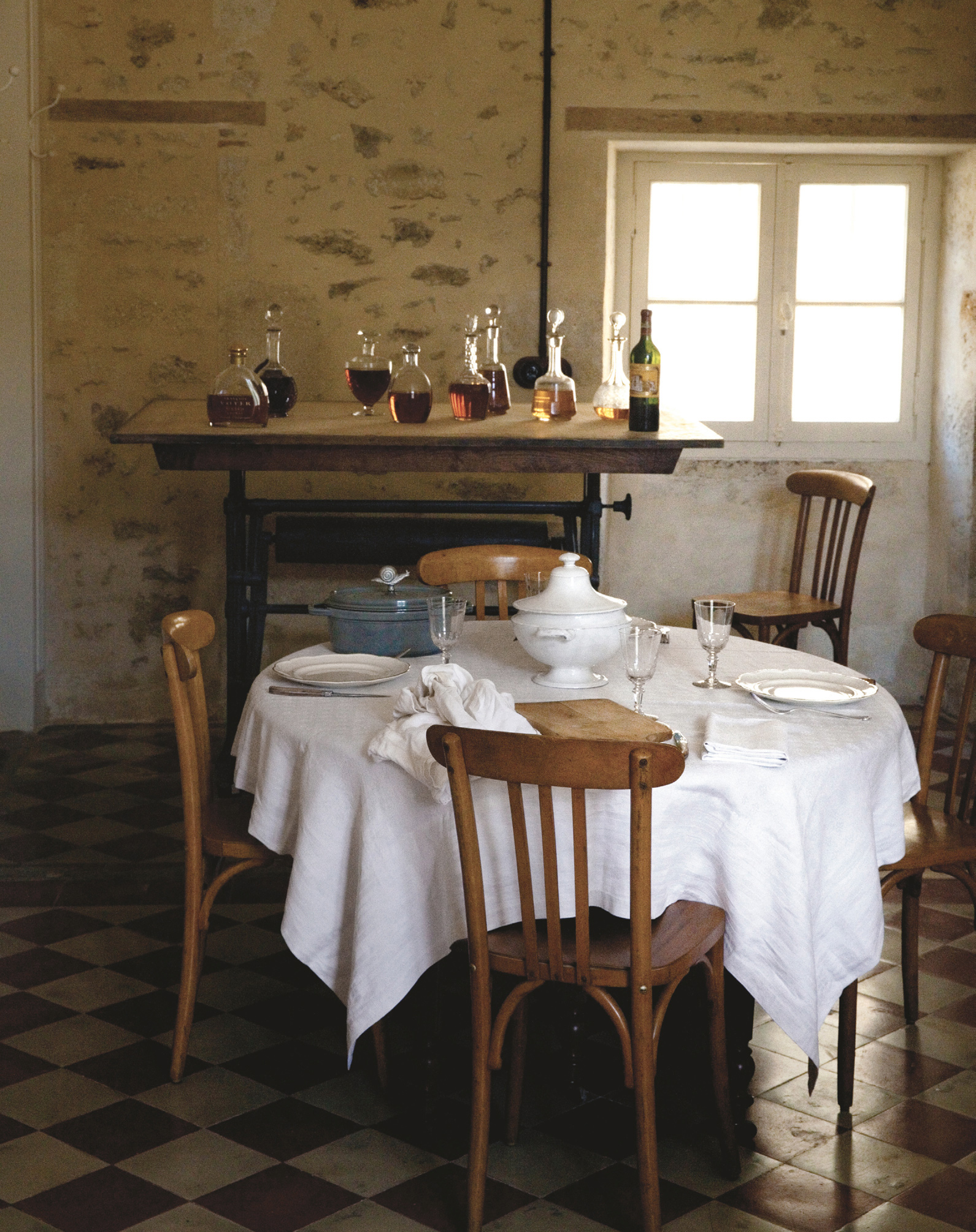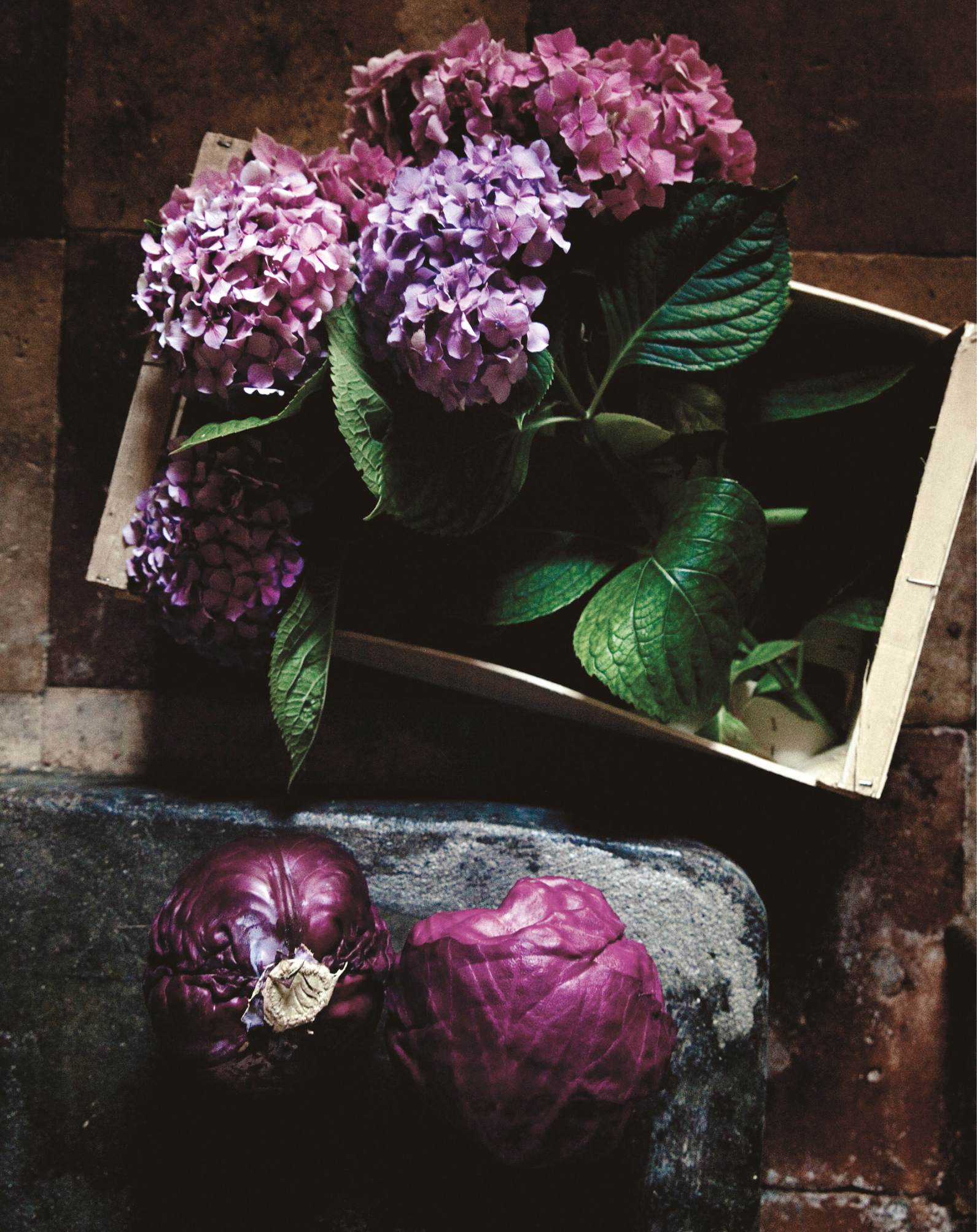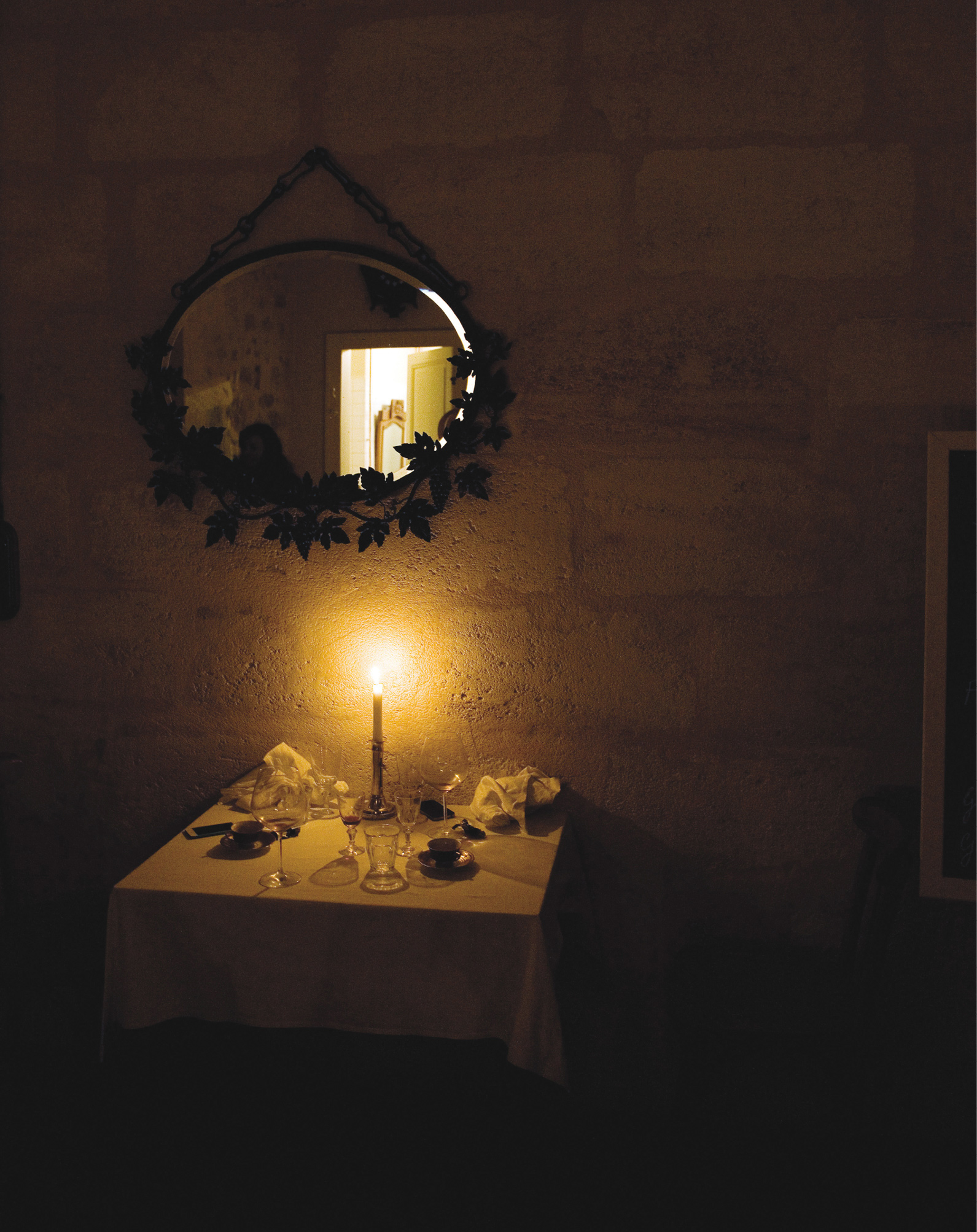EPILOGUE
T his roof will last for a hundred years! Thats what Monsieur Ladra told us when he sold us the house. As work on the house turned out to be more than expected (far more, to be exact), I always took great comfort in his words. All new work was justified by well, at least we wont have to change the roof. We needed every-thing from new electricity to new shutters, but thats nothing compared with changing a roof.
One day the roof will have to be changedin ninety-seven years, according to Monsieur Ladra, but probably closer to sixty or seventy. Either way, I wont be the one doing it or living through it, and for that I am thankful. I do think about it from time to time, though, imagining the start of work. A team of artisans will arrive at the gates of No 1 rue de Loudenne and walk past a magnificent magnolia tree, a few little white dogs, and so many olive trees that they will wonder who on earth decided to plant so many in such little space. Someone will show them to the roof to assess the slate tiles and, because this is a Saturday (yes, I know, an odd day to start work on a roof, but please bear with me), they will notice crowds gathering with increasing frequency at the side of the house and disappearing into the garage next to No 1 rue de Loudenne. They will hear music and laughter and will smell food. Delicious food. They will resistbut not for long, and soon theyll find themselves inside the garage, or the No 1 Saturday Market as it will be called. Theyll walk past stalls packed with glorious vegetables, cheeses, and fruit; oyster stands bustling with talk and wine; old men selling eggs and onions; rows of breadsand finally arrive at a simply but beautifully decorated stall selling tempting but reasonably priced seasonal snacks. Before they have time to order, a young man will present himself and tell them that arrangements have already been made for their lunch. He will lead them through the garage, into the (by then) restored wine cellar, between rows of the finest Mdoc wines, through a pantry filled with flowers and jars of jam and pork, through a little door into a large kitchen with red and white tiles and a grand fireplace. There will be duck breasts slowly grilling on dried grapevine branches, and a young woman will be giving a group of people from Bordeaux a wine-tasting class at the old kitchen table, the one that has always been in this house. Thats my cousin, the young man will say. Shes a character. He will lead the artisans through the second kitchen, through the green dining room, the one with the painting of the sly fox. Then they will arrive in the harvest room where a huge table will be beautifully laid out for twenty people, filled with flowers and candles and stacks of seasonal fruits. Everybody will have Champagne and radishes, with salt and thick yellow butter.
Puppies will be playing under the table and little children will be running around it. Soon a handsome man in his fifties will appear from the boucherie holding a big bowl of gazpacho. Thats my father, the young man will say. He is a fabulous cook; he grew up in the kitchen and knows my great-grandmothers recipes better than anyone. Then they will have grilled meat and garlic potatoes and drink great wine served by the young woman. The lunch will last for hours, and at the end of it, the young man will tell the artisans to take the day off. But dont tell my great-aunt Louise. Shes not here today, but shes kind of strict. Then the artisans will head home, well fed and happy, ready to commence the work in earnest on Monday.
Some weeks later, a group of people, many of them family, will be gazing up at the newly tiled roof from amongst the olive trees in the garden. They will admire the work silently until one of them says, I bet this will last for a hundred years.
ACKNOWLEDGMENTS
Thank you to:
Oddur, for everything. We are two heads on the same dragon. I love you.
Gunnhildur, rir, Mia, Hudson, Louise, Gaa, and Audrey, for making my life beautiful, for your willingness to eat everything, and for (mostly) keeping your elbows off the table.
Rica, my dear editor and friend, I can't imagine ever working on any book without your insights, efficiency, humor, and kindness.
Cyrille, for lending me your gorgeous scallops recipe and also your gentle hand in the restaurant when a real pro was needed.
Matt and Yolanda, for being such good friends and future neighbors and so supportive in everything I doSt Yzans style.
Fabien and Flo, for your endless generosity and friendship.
The dream team at Clarkson Potter, especially Anna and Kevin, my partners in crime on the publicity and marketing circuit.
Jenny, for designing such a gorgeous book, and Stephanie, Luisa, Kim, and Patricia, for taking care of it along the way.
April and Miles, for the fun we had before, during, and after meals.
Bruno Borie, for the good times in the kitchen and for all your wine we enjoyed together.
Laurent Dufau and Sophie Marc, for your support, the meals, and especially the wine we had.
Jean-Claude Ladra, for helping us understand 1 rue de Loudenne and St Yzans.
Monsieur Teyssier, for letting us use your land to grow vegetables and let our dogs run free.
Anne and Mimi, for your elegance, kindness, and all the wonderful objects that used to be in your store in St Christoly but are now in our house. And for coming to our restaurant almost every time we were open.
My parents, Genevieve and Louis, for teaching me how to love food if not to cook.
Taty Francine, for inspiring me to always make every meal special.
Jhanna and rir, for your unlimited kindness, patience, and support.
Allegra, for being by my side in the kitchen every day and for being so wonderful.
Jean-Michel Cazes and your wonderful family, for lending us the keys to Mdoc. So many things would not have been possible without you. And thank you for caring so much about our region.
and, finally, the black cat in the village. I know who you are!
NO 1 RUE DE LOUDENNE
I had passed the gray, grand old house at No 1 rue de Loudenne on several occasions since moving to Mdoc, but I had never thought that it would ever have anything to do with me.
We had left our Parisian lives a few years earlier and had settled in a farmhouse in the northern part of Mdoc, right in the middle of the dense pine forests and close to the beautiful white beaches of the Atlantic coast. We had entered a mysterious new world of winemakers, hunters, vegetable growers, and local gourmands whose way of life seemed in many ways more content, simpler, and perhaps fuller than we had any right to expect. We were, in a word, happy! Our growing family felt at home in the countryside, and as the years passed we realized that we would probably never leave. We thought about buying a farmhouse to call our own, maybe something closer to the vineyards we love. It had to be special; it had to suit us.

